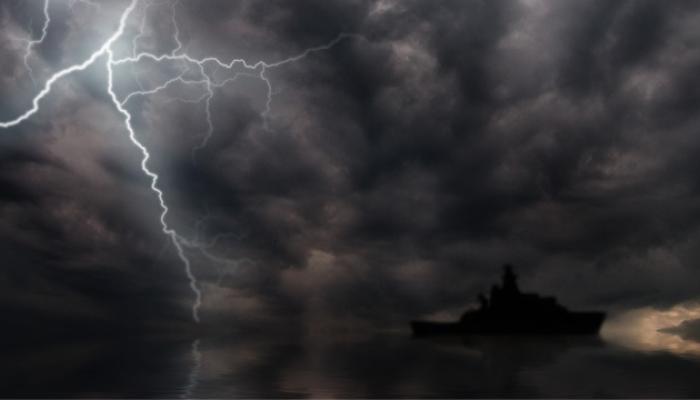
1.46 What is hell like?
If someone can freely choose God, he must also have the possibility to reject him, otherwise the choice is not free. Someone who consciously and definitively rejects God and his love, chooses hell. Actually, we do not know exactly what hell looks like.
We know it is a place without joy, because true happiness can only be found with God. Hell is full of pain and suffering. Worse, people there are forever lonely, because selfishness prevails. A greater contrast with heaven is inconceivable! Fortunately, while we are here on earth we still have the option of showing remorse for our sins and receiving God’s love and forgiveness.
How are sins distinguished according to their gravity?
A distinction is made between mortal and venial sin. [CCCC 394]
When does one commit a mortal sin?
One commits a mortal sin when there are simultaneously present: grave matter, full knowledge, and deliberate consent. This sin destroys charity in us, deprives us of sanctifying grace, and, if unrepented, leads us to the eternal death of hell. It can be forgiven in the ordinary way by means of the sacraments of Baptism and of Penance or Reconciliation. [CCCC 395]
How can we distinguish serious sins (mortal sins) from less serious (venial) sins?
Serious sin destroys the divine power of love in a person’s heart, without which there can be no eternal beatitude. Hence it is also called mortal sin. Serious sin breaks with God, whereas venial sin only strains the relationship with him.
A serious sin cuts a person off from God. One requirement for such a sin is that it be opposed to an important value, for instance, directed against life, against marriage, or God (for example, murder, blasphemy, adultery, and so on) and that it be committed with full knowledge and full consent. Venial sins are opposed to secondary values or are committed without full knowledge of their seriousness or without full consent of the will. Such sins disrupt the relationship with God but do not sever it. [Youcat 316]
How can a person be delivered from a serious sin and reunited with God?
In order to heal the break with God that is caused by a serious sin, a Catholic Christian must be reconciled with God through confession. [Youcat 317]
How can one reconcile the existence of hell with the infinite goodness of God?
God, while desiring “all to come to repentance” (2 Peter 3:9), nevertheless has created the human person to be free and responsible; and he respects our decisions. Therefore, it is the human person who freely excludes himself from communion with God if at the moment of death he persists in mortal sin and refuses the merciful love of God. [CCCC 213]
What is hell?
Hell is the condition of everlasting separation from God, the absolute absence of love.
Someone who consciously and with full consent dies in serious sin, without repenting, and refuses God’s merciful, forgiving love forever, excludes himself from communion with God and the saints. Our freedom makes that decision possible. Jesus warns us again and again not to separate ourselves definitively from him by shutting our hearts against the need of his brothers and sisters: “Depart from me, you cursed …. As you did it not to one of the least of these, you did it not to me” (Mt 25:41, 45). [Youcat 161]
But if God is love, how can there be a hell?
God does not damn men. Man himself is the one who refuses God’s merciful love and voluntarily deprives himself of (eternal) life by excluding himself from communion with God. [Youcat 162]
There is one kind of fire in hell, but it does not torment all sinners in the same way, for each feels its torments according to his degree of guilt... Just as the joys of heaven will never cease, so, too, there is no end to the torments of the damned. [St. Gregory the Great, Dialogues, Bk. 4:43 (ML 77, 401)]





